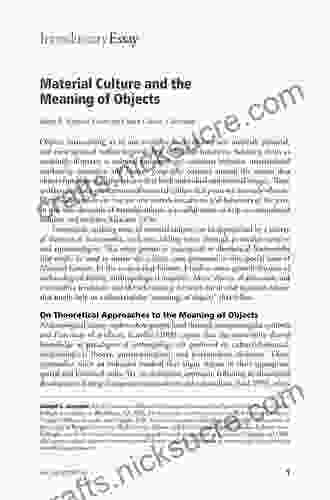English Language Learning for Indian Speakers: A Comprehensive Guide for Teachers and Foreigners

4.2 out of 5
| Language | : | English |
| File size | : | 418 KB |
| Text-to-Speech | : | Enabled |
| Screen Reader | : | Supported |
| Enhanced typesetting | : | Enabled |
| Print length | : | 64 pages |
English has become a global language, and it is essential for communication in many fields, including business, education, and travel. For Indian speakers, learning English can open up new opportunities and help them to connect with the world. However, there are some unique challenges that Indian speakers face when learning English.
Challenges in English Language Learning for Indian Speakers
- Pronunciation: Indian speakers often have difficulty pronouncing certain English sounds, such as the "th" sound in "this" and the "r" sound in "red." This can make it difficult for them to be understood by native English speakers.
- Grammar: Indian speakers may also struggle with certain aspects of English grammar, such as the use of articles and prepositions. This can lead to errors in their writing and speaking.
- Vocabulary: Indian speakers may not be familiar with many English words, especially those that are not used in everyday conversation. This can make it difficult for them to understand English texts and participate in English-speaking conversations.
- Cultural differences: Indian speakers may also be unfamiliar with certain cultural aspects of English-speaking countries. This can lead to misunderstandings and communication problems.
Strategies for Teaching English to Indian Speakers
Despite the challenges, there are a number of effective strategies that teachers can use to help Indian speakers learn English. These strategies include:
- Using authentic materials: Authentic materials, such as newspapers, magazines, and videos, can help Indian speakers to learn English in a natural and meaningful way.
- Focusing on pronunciation: Teachers should provide Indian speakers with plenty of opportunities to practice pronunciation. This can be done through drills, games, and songs.
- Teaching grammar explicitly: Indian speakers may need to be taught grammar explicitly. This can be done through grammar lessons, exercises, and games.
- Building vocabulary: Teachers should help Indian speakers to build their vocabulary by introducing them to new words and phrases. This can be done through reading, writing, and speaking activities.
- Raising cultural awareness: Teachers should help Indian speakers to understand the cultural aspects of English-speaking countries. This can be done through discussions, readings, and films.
Resources for Teaching English to Indian Speakers
There are a number of resources available to help teachers teach English to Indian speakers. These resources include:
- Textbooks: There are a number of textbooks that have been specifically designed for teaching English to Indian speakers. These textbooks typically include lessons on pronunciation, grammar, vocabulary, and culture.
- Websites: There are a number of websites that provide resources for teaching English to Indian speakers. These websites typically include lesson plans, activities, and worksheets.
- Online courses: There are a number of online courses that can help teachers to learn how to teach English to Indian speakers. These courses typically cover topics such as pronunciation, grammar, vocabulary, and culture.
Tips for Foreigners Learning English from Indian Speakers
Foreigners who are learning English from Indian speakers may also face some challenges. These challenges include:
- Pronunciation: Indian speakers often have a different pronunciation than native English speakers. This can make it difficult for foreigners to understand what they are saying.
- Grammar: Indian speakers may also use different grammar than native English speakers. This can lead to misunderstandings and communication problems.
- Vocabulary: Indian speakers may use different vocabulary than native English speakers. This can make it difficult for foreigners to understand what they are saying.
- Cultural differences: Indian speakers may have different cultural customs than foreigners. This can lead to misunderstandings and communication problems.
Strategies for Foreigners Learning English from Indian Speakers
Despite the challenges, there are a number of effective strategies that foreigners can use to learn English from Indian speakers. These strategies include:
- Be patient: It is important to be patient when learning English from Indian speakers. It may take some time to adjust to their pronunciation, grammar, and vocabulary.
- Ask questions: If you do not understand something, do not be afraid to ask questions. Indian speakers are typically very friendly and helpful.
- Be respectful: It is important to be respectful of Indian culture. This includes being aware of the different customs and traditions.
- Immerse yourself in the language: The best way to learn English from Indian speakers is to immerse yourself in the language. This means spending time with Indian people, watching Indian movies, and reading Indian books.
Learning English can be a challenging but rewarding experience for Indian speakers. By using the strategies outlined in this guide, teachers and foreign learners can effectively engage Indian speakers in the learning process and help them to achieve their English language goals.
4.2 out of 5
| Language | : | English |
| File size | : | 418 KB |
| Text-to-Speech | : | Enabled |
| Screen Reader | : | Supported |
| Enhanced typesetting | : | Enabled |
| Print length | : | 64 pages |
Do you want to contribute by writing guest posts on this blog?
Please contact us and send us a resume of previous articles that you have written.
 Fiction
Fiction Non Fiction
Non Fiction Romance
Romance Mystery
Mystery Thriller
Thriller SciFi
SciFi Fantasy
Fantasy Horror
Horror Biography
Biography Selfhelp
Selfhelp Business
Business History
History Classics
Classics Poetry
Poetry Childrens
Childrens Young Adult
Young Adult Educational
Educational Cooking
Cooking Travel
Travel Lifestyle
Lifestyle Spirituality
Spirituality Health
Health Fitness
Fitness Technology
Technology Science
Science Arts
Arts Crafts
Crafts DIY
DIY Gardening
Gardening Petcare
Petcare Adam Frank
Adam Frank Aaron Mccargo
Aaron Mccargo Thomas Wilson
Thomas Wilson Alan Robertson
Alan Robertson Marlene Wagman Geller
Marlene Wagman Geller Gavin D J Harper
Gavin D J Harper Achille Rubini
Achille Rubini Abridged Ed Edition Kindle Edition
Abridged Ed Edition Kindle Edition Clara Shaper
Clara Shaper Elena Aguilar
Elena Aguilar Allan Sand
Allan Sand David Winner
David Winner Amber Fox
Amber Fox Gail Buckland
Gail Buckland Bill Mckibben
Bill Mckibben Claire Santry
Claire Santry Brian Hoggard
Brian Hoggard Caroline Kaufman
Caroline Kaufman Brigitte Jordan
Brigitte Jordan Renda Dionne Madrigal
Renda Dionne Madrigal Michael Crawley
Michael Crawley Christopher Black
Christopher Black Lisa M Schab
Lisa M Schab Zoyla Arana
Zoyla Arana Richard Sattora
Richard Sattora Stacy Eaton
Stacy Eaton James Heberd
James Heberd Reinette Biggs
Reinette Biggs Tom Rosenbauer
Tom Rosenbauer Xiuhtezcatl Martinez
Xiuhtezcatl Martinez Lavinia Collins
Lavinia Collins Cassandra Eason
Cassandra Eason David Simon
David Simon Carley Roney
Carley Roney Sean Lewis
Sean Lewis Kaylynn Flanders
Kaylynn Flanders Casey Robson
Casey Robson Dr Robert Pasahow
Dr Robert Pasahow Jack Cavanaugh
Jack Cavanaugh Bobby Reyes
Bobby Reyes Dan Werb
Dan Werb Aliza Green
Aliza Green Christopher Monahan
Christopher Monahan Jasna Tuta
Jasna Tuta Ed Engle
Ed Engle Louise Thaden
Louise Thaden Abigail Hing Wen
Abigail Hing Wen Bill Loguidice
Bill Loguidice Sally Clarkson
Sally Clarkson Tim Jarvis
Tim Jarvis Chella Quint
Chella Quint Irakli Makharadze
Irakli Makharadze Taylan Hoca
Taylan Hoca John Kean
John Kean Katie Lear
Katie Lear Aaron J Perry
Aaron J Perry John Hancock
John Hancock Justin Driver
Justin Driver Jay Ruud
Jay Ruud Marie Cirano
Marie Cirano Abby Mcallister
Abby Mcallister Programming Languages Academy
Programming Languages Academy Andrea M Nelson Royes
Andrea M Nelson Royes Randy Walker
Randy Walker Leigh Bardugo
Leigh Bardugo Winifred Conkling
Winifred Conkling Abu Mussab Wajdi Akkari
Abu Mussab Wajdi Akkari Randi Hutter Epstein
Randi Hutter Epstein Charles Fernyhough
Charles Fernyhough Garrett Mcnamara
Garrett Mcnamara Steve Roper
Steve Roper Uri Bram
Uri Bram Conrad Bauer
Conrad Bauer Erika Fatland
Erika Fatland Ron Jones
Ron Jones Dawson Church
Dawson Church Emily K Neuburger
Emily K Neuburger Eduardo Duran
Eduardo Duran Christian Beamish
Christian Beamish Papus
Papus G Bailey
G Bailey Lee Sandlin
Lee Sandlin Marvin Valerie Georgia
Marvin Valerie Georgia Nick Holt
Nick Holt James Surowiecki
James Surowiecki Walter Browder
Walter Browder Kim Gosselin
Kim Gosselin Abby Haight
Abby Haight Al Baird
Al Baird Horace Kephart
Horace Kephart Paula Deen
Paula Deen Colin Hunter
Colin Hunter Gregor Clark
Gregor Clark Emma Crewe
Emma Crewe Terry Palechuk
Terry Palechuk Annie Nicholas
Annie Nicholas Chuck Callaway
Chuck Callaway Charles C Patrick
Charles C Patrick Tomos Forrest
Tomos Forrest Ian Mcleod
Ian Mcleod Lynn Alley
Lynn Alley Jim Morekis
Jim Morekis Glen Finland
Glen Finland Abigail Alling
Abigail Alling Sarah Moore
Sarah Moore Jeremy Paxman
Jeremy Paxman Richelle Mead
Richelle Mead Lois G Schwoerer
Lois G Schwoerer Richard Langer
Richard Langer Aaron Reed
Aaron Reed T L Lowery
T L Lowery Larry Carpenter
Larry Carpenter Michael Gruenbaum
Michael Gruenbaum Kevin A Morrison
Kevin A Morrison Ralph Villiger
Ralph Villiger Tamora Pierce
Tamora Pierce Timothy Phelps
Timothy Phelps Jessica Hepburn
Jessica Hepburn Maya Lang
Maya Lang Tali Edut
Tali Edut Andy Dumas
Andy Dumas Aaron Reed Msn Crna
Aaron Reed Msn Crna Barry Robinson
Barry Robinson Aaron Blight
Aaron Blight Stephen A Mitchell
Stephen A Mitchell Shannon Hale
Shannon Hale Lin Wellford
Lin Wellford Jimmy Houston
Jimmy Houston Abigail Pogrebin
Abigail Pogrebin Jacob Neumann
Jacob Neumann Carl Jones
Carl Jones O Thomas Gift
O Thomas Gift Jeff Bauman
Jeff Bauman Andy Couturier
Andy Couturier Abigail Tucker
Abigail Tucker Devika Primic
Devika Primic M J Parisian
M J Parisian Edward J Larson
Edward J Larson Jeremy Shinewald
Jeremy Shinewald Jennifer Greene
Jennifer Greene Sheri Van Dijk
Sheri Van Dijk Kel Carpenter
Kel Carpenter Rob Gray
Rob Gray Gisle Solhaug
Gisle Solhaug Og Mandino
Og Mandino Curt Lader
Curt Lader Adam J Rosh
Adam J Rosh Adam Boduch
Adam Boduch Baba Ifa Karade
Baba Ifa Karade Brian Greene
Brian Greene Kemi Iwalesin
Kemi Iwalesin Adam Becker
Adam Becker Neil Oliver
Neil Oliver Ned Johnson
Ned Johnson Adam Enaz
Adam Enaz Linford Stutzman
Linford Stutzman Achusim Michael
Achusim Michael Barbara A Lewis
Barbara A Lewis Rania Abouzeid
Rania Abouzeid Cornel West
Cornel West Achim K Krull
Achim K Krull Tom Migdalski
Tom Migdalski Darrin Bergman
Darrin Bergman Aaron Mahnke
Aaron Mahnke Al Barkow
Al Barkow Abby Hafer
Abby Hafer Adam Koch
Adam Koch Irene Lewis Mccormick
Irene Lewis Mccormick Rex Ogle
Rex Ogle Gerry Donohue
Gerry Donohue Carmen Moreno
Carmen Moreno Jeremy Miles
Jeremy Miles Amber Domoradzki
Amber Domoradzki Emily J Taylor
Emily J Taylor Sam Jarman
Sam Jarman Ben Cohen
Ben Cohen Richard Lighthouse
Richard Lighthouse Fumio Sasaki
Fumio Sasaki Ken Springer
Ken Springer Abigail Owen
Abigail Owen Barbara Fox
Barbara Fox Shari Eskenas
Shari Eskenas Debbie Ford
Debbie Ford Miranda Kenneally
Miranda Kenneally Melodie M Davis
Melodie M Davis Gayle Forman
Gayle Forman Martha Gellhorn
Martha Gellhorn Scott Butler
Scott Butler Pamela Druckerman
Pamela Druckerman Abbey Curran
Abbey Curran Mary Wong
Mary Wong Miriam Forman Brunell
Miriam Forman Brunell Gloria Atanmo
Gloria Atanmo Laurence Steinberg
Laurence Steinberg Charles H Kraft
Charles H Kraft Rick Sekuloski
Rick Sekuloski Martha C Nussbaum
Martha C Nussbaum Peter Sagal
Peter Sagal Jessie Hartland
Jessie Hartland Vikas Kakwani
Vikas Kakwani Daphne Poltz
Daphne Poltz Rose Ann Hudson
Rose Ann Hudson Pat Chargot
Pat Chargot Jennifer Shannon
Jennifer Shannon Sheldon Axler
Sheldon Axler David Feddes
David Feddes Anthony Wilkenson
Anthony Wilkenson Barry Dainton
Barry Dainton Israel Finkelstein
Israel Finkelstein William Hamilton Gibson
William Hamilton Gibson Kathy Koch Phd
Kathy Koch Phd Eugene H Merrill
Eugene H Merrill Peter David
Peter David Deborah Madison
Deborah Madison Cosmas Inyang
Cosmas Inyang Achref Hassini
Achref Hassini Moon Ho Jung
Moon Ho Jung Hans C Ohanian
Hans C Ohanian Robert Allans
Robert Allans Lynn E Ponton
Lynn E Ponton Abbas Kazerooni
Abbas Kazerooni Abraham Silberschatz
Abraham Silberschatz Chris Jericho
Chris Jericho Judi Kesselman Turkel
Judi Kesselman Turkel Asato Asato
Asato Asato Kirk Bailey
Kirk Bailey Stephen Gray
Stephen Gray Ann Frederick
Ann Frederick Laurie Chaikind Mcnulty Lcsw C
Laurie Chaikind Mcnulty Lcsw C Dan Shideler
Dan Shideler George John Romanes
George John Romanes Brian L Gorman
Brian L Gorman John D Gordon
John D Gordon Ariana Eagleton
Ariana Eagleton Jennifer Ackerman
Jennifer Ackerman Chris Worfolk
Chris Worfolk Arthur Turrell
Arthur Turrell Jane Gross
Jane Gross Abigail Marshall
Abigail Marshall Todd Graves
Todd Graves Sophie Mccartney
Sophie Mccartney Ken Retallic
Ken Retallic Pearson Education
Pearson Education Liza Angela
Liza Angela Sarah Luddington
Sarah Luddington Sherri Granato
Sherri Granato Scott Shaw
Scott Shaw Sheila Lamb
Sheila Lamb Jennifer L Hunt
Jennifer L Hunt Scott Parsons
Scott Parsons Daniel Carter Beard
Daniel Carter Beard Michael Egan
Michael Egan Sarah Maslin Nir
Sarah Maslin Nir Maureen Duffin Ward
Maureen Duffin Ward Sasha Abramsky
Sasha Abramsky Phil Gaimon
Phil Gaimon Collins Kids
Collins Kids Vivian Gussin Paley
Vivian Gussin Paley Craig Timberg
Craig Timberg Iain Highfield
Iain Highfield Kate Rope
Kate Rope Sam J Miller
Sam J Miller Lucio Russo
Lucio Russo Aaron James
Aaron James Mark Strom
Mark Strom Laura Ray
Laura Ray Phong Thong Dang
Phong Thong Dang Barbara Natterson Horowitz
Barbara Natterson Horowitz Jim Willis
Jim Willis Paul Mclerran
Paul Mclerran Adam Freeman
Adam Freeman Man Kam Lo
Man Kam Lo Ilsa J Bick
Ilsa J Bick Adam Lazarus
Adam Lazarus Charles Thomas Jr
Charles Thomas Jr Michael Johnson
Michael Johnson Tom Jackson
Tom Jackson Zoe Hamlet Silva
Zoe Hamlet Silva Helen Scales
Helen Scales Richard Martin
Richard Martin Agustin Fuentes
Agustin Fuentes Beth Newell
Beth Newell Goodman Publishing
Goodman Publishing Emily Suzanne Clark
Emily Suzanne Clark Shuai Huang
Shuai Huang Aaron Oster
Aaron Oster Bruce Van Brunt
Bruce Van Brunt Gary Sakuma
Gary Sakuma Kenn Kaufman
Kenn Kaufman Lisa Robertson
Lisa Robertson Lindsey Ellison
Lindsey Ellison Carolyn Jessop
Carolyn Jessop Dan Morris
Dan Morris William Deresiewicz
William Deresiewicz Sean Mcmanus
Sean Mcmanus Michael L Bloomquist
Michael L Bloomquist Wayne Westcott
Wayne Westcott Felice Fox
Felice Fox Mikki Daughtry
Mikki Daughtry Gil Capps
Gil Capps Gladys Chepkirui Ngetich
Gladys Chepkirui Ngetich Dmv Test Bank
Dmv Test Bank Robert Fritz
Robert Fritz Abby Sunderland
Abby Sunderland Michelle Obama
Michelle Obama Megan Lane
Megan Lane Fred Fields
Fred Fields Alifya And Umesh Mohite
Alifya And Umesh Mohite Peter Harrison
Peter Harrison Abigail Hair
Abigail Hair Debbie Elicksen
Debbie Elicksen Helen C Rountree
Helen C Rountree Genius Reads
Genius Reads Ann Mariah Cook
Ann Mariah Cook Stephen Brennan
Stephen Brennan Michel Roy
Michel Roy Gerald A Voorhees
Gerald A Voorhees An American Citizen
An American Citizen Ada Calhoun
Ada Calhoun Suzanne Corkin
Suzanne Corkin Jenny Han
Jenny Han Rolf Mowatt Larssen
Rolf Mowatt Larssen Andrew Campanella
Andrew Campanella Stephen Abbott
Stephen Abbott Laura Gao
Laura Gao Sharon Boyd
Sharon Boyd Lisa Heffernan
Lisa Heffernan Natasha Preston
Natasha Preston David Lipsky
David Lipsky Abbi Glines
Abbi Glines Teresa Finney
Teresa Finney Corinne Andrews
Corinne Andrews Aaron Hahn
Aaron Hahn Rachel Caine
Rachel Caine Farah Shabazz Ii
Farah Shabazz Ii Sarah K L Wilson
Sarah K L Wilson Tim Larkin
Tim Larkin Thubten Yeshe
Thubten Yeshe Norton Juster
Norton Juster Kristin Berry
Kristin Berry Ronald Kaine
Ronald Kaine Harley Rustad
Harley Rustad Ron Hotchkiss
Ron Hotchkiss Laura Sebastian
Laura Sebastian Deborah Beck Busis
Deborah Beck Busis Laura Peyton Roberts
Laura Peyton Roberts Randall Hyde
Randall Hyde Michael N Mitchell
Michael N Mitchell Bathroom Readers Institute
Bathroom Readers Institute Winston Chang
Winston Chang Chiara Giuliani
Chiara Giuliani Nancy Mohrbacher
Nancy Mohrbacher Alicia Silverstone
Alicia Silverstone Abdul Foster
Abdul Foster Sissy Goff
Sissy Goff Maxine Levaren
Maxine Levaren Lucy Letcher
Lucy Letcher Robert Reid
Robert Reid Paul Chiasson
Paul Chiasson Adam D Scott
Adam D Scott Abdelkader Nouiri
Abdelkader Nouiri Alvin Alexander
Alvin Alexander Michelle Hodkin
Michelle Hodkin John Caig
John Caig Aiden Thomas
Aiden Thomas Susan Zeppieri
Susan Zeppieri Chaz Scoggins
Chaz Scoggins R L Stine
R L Stine Christina Hoff Sommers
Christina Hoff Sommers Drew Harris
Drew Harris Steve Rosenberg
Steve Rosenberg Jack Moore
Jack Moore Amelia Whitmore
Amelia Whitmore Michael Baigent
Michael Baigent Charlie Barker
Charlie Barker Sorin Dumitrascu
Sorin Dumitrascu Barbara Decker
Barbara Decker Adam J Cox
Adam J Cox Lillian Cumic
Lillian Cumic Joy Neighbors
Joy Neighbors Mary Roach
Mary Roach George J Hademenos
George J Hademenos Matt Owens
Matt Owens Lisa Pineda
Lisa Pineda Carl Vernon
Carl Vernon Stephen R Lawhead
Stephen R Lawhead Douglas W Hubbard
Douglas W Hubbard Adam Galinsky
Adam Galinsky Stefan Ball
Stefan Ball Marc Dando
Marc Dando Lynn Rush
Lynn Rush Susan Walton
Susan Walton Christopher Knight
Christopher Knight Steve Mcmenamin
Steve Mcmenamin E P Marcellin
E P Marcellin Scott Carney
Scott Carney Tony Soper
Tony Soper Louise Pickford
Louise Pickford Matt Warshaw
Matt Warshaw Seth Kugel
Seth Kugel Kit Bauman
Kit Bauman Christopher S Stewart
Christopher S Stewart Monica Sorrenson
Monica Sorrenson Jason Korol
Jason Korol Brad Brewer
Brad Brewer Heather Lynn
Heather Lynn Ian Davis
Ian Davis Brandon Neice
Brandon Neice Christopher Pike
Christopher Pike Stephanie Zeiss
Stephanie Zeiss Mark Januszewski
Mark Januszewski Joe Simpson
Joe Simpson Lenyfer Garrido
Lenyfer Garrido Lisa Latimer
Lisa Latimer Domenica Marchetti
Domenica Marchetti Al Desetta
Al Desetta John Taylor
John Taylor Adam Kimelman
Adam Kimelman Phil Boyle
Phil Boyle Rachael Ray
Rachael Ray Aaron Graves
Aaron Graves J Robert King
J Robert King Virginia Smith Harvey
Virginia Smith Harvey Garo Yepremian
Garo Yepremian Betsy Miller
Betsy Miller Blake D Bauer
Blake D Bauer David G Brown
David G Brown Vince Kotchian
Vince Kotchian Adam Benshea
Adam Benshea Jay Dawes
Jay Dawes Stuart Firestein
Stuart Firestein Lisa M Given
Lisa M Given Scott Meyers
Scott Meyers Stephanie Puglisi
Stephanie Puglisi Rosie Pope
Rosie Pope Benjamin Roberts
Benjamin Roberts Roman Dial
Roman Dial Abhishek V R
Abhishek V R Kayla Cottingham
Kayla Cottingham Charles L Byrne
Charles L Byrne Katrina Kahler
Katrina Kahler Christophe Jaffrelot
Christophe Jaffrelot Adam Lashinsky
Adam Lashinsky Axie Oh
Axie Oh Adam H Balen
Adam H Balen Jennifer Finney Boylan
Jennifer Finney Boylan Hillary Allen
Hillary Allen Arthur Atchabahian
Arthur Atchabahian David Warriner
David Warriner Alicia C Simpson
Alicia C Simpson Steve Griffith
Steve Griffith Rory Miller
Rory Miller Adam Chandler
Adam Chandler Chashiree M
Chashiree M Elisabetta Viggiani
Elisabetta Viggiani Paul Schneider
Paul Schneider Meg Keys
Meg Keys Jeremy Roenick
Jeremy Roenick Vivienne Sanders
Vivienne Sanders Aaron Lee Johnson
Aaron Lee Johnson Amby Burfoot
Amby Burfoot Dick Edie
Dick Edie Abinash Das
Abinash Das Andrew Skurka
Andrew Skurka Alexander Nehamas
Alexander Nehamas Tom Mccarthy
Tom Mccarthy Claire Ahn
Claire Ahn Ryan Smithson
Ryan Smithson Jon Butterworth
Jon Butterworth Abigail Melton
Abigail Melton Eze Ugbor
Eze Ugbor Linda Sarris
Linda Sarris Catherine Ryan Hyde
Catherine Ryan Hyde Adam Braus
Adam Braus P S Page
P S Page Tomi Adeyemi
Tomi Adeyemi David Rensin
David Rensin Al Yellon
Al Yellon Erik Scott De Bie
Erik Scott De Bie Steven Alan Childress
Steven Alan Childress T L Christianson
T L Christianson
Light bulbAdvertise smarter! Our strategic ad space ensures maximum exposure. Reserve your spot today!

 Vincent MitchellFuel Cell Projects For The Evil Genius: A Comprehensive Guide to Clean Energy...
Vincent MitchellFuel Cell Projects For The Evil Genius: A Comprehensive Guide to Clean Energy... Deacon BellFollow ·16.8k
Deacon BellFollow ·16.8k Kazuo IshiguroFollow ·12.1k
Kazuo IshiguroFollow ·12.1k Kendall WardFollow ·8.6k
Kendall WardFollow ·8.6k Blake KennedyFollow ·8.8k
Blake KennedyFollow ·8.8k Greg CoxFollow ·13.7k
Greg CoxFollow ·13.7k Dale MitchellFollow ·4.4k
Dale MitchellFollow ·4.4k Joseph FosterFollow ·10.8k
Joseph FosterFollow ·10.8k Pete BlairFollow ·5.3k
Pete BlairFollow ·5.3k

 Doug Price
Doug PriceTracing the Evolution of Modern Psychoanalytic Thought:...
Psychoanalysis, once considered a radical...

 Devin Ross
Devin RossThe Digital Role Playing Game Approaches To Digital Game...
These are just a few of the many...

 F. Scott Fitzgerald
F. Scott FitzgeraldHistory from Things: Essays on Material Culture
History from Things:...

 Percy Bysshe Shelley
Percy Bysshe ShelleyThe Priest Lake Girl and the Cabin of Love: A True Story...
The Murder On...

 Isaiah Powell
Isaiah PowellThe Golf Mystic: Dick Edie's Unconventional Approach to...
In the annals of golf history, the name Dick...
4.2 out of 5
| Language | : | English |
| File size | : | 418 KB |
| Text-to-Speech | : | Enabled |
| Screen Reader | : | Supported |
| Enhanced typesetting | : | Enabled |
| Print length | : | 64 pages |












